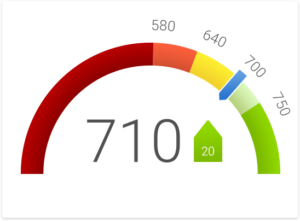 Today’s top story: 4 ways to get a sales price when there isn’t a sale. Also in the news: What to buy and skip in September, why your kid’s after-school job may mean tax homework for you, and why your credit card debt is worse than your mortgage debt.
Today’s top story: 4 ways to get a sales price when there isn’t a sale. Also in the news: What to buy and skip in September, why your kid’s after-school job may mean tax homework for you, and why your credit card debt is worse than your mortgage debt.
4 Ways to Get a Sale Price When There Isn’t a Sale
It can be as simple as just asking for one.
What to Buy (and Skip) in September
Skip the televisions.
Your Kid’s After-School Job May Mean Tax Homework for You
When to file a return.
Your Credit Card Debt Is Worse Than Your Mortgage Debt
The difference between good and bad debt.
 Today’s top story: Why traditional credit scores still matter. Also in the news: Staying ahead of travel scams, banks still playing with financial fire, and the benefits to maxing out your retirement contributions early in the year.
Today’s top story: Why traditional credit scores still matter. Also in the news: Staying ahead of travel scams, banks still playing with financial fire, and the benefits to maxing out your retirement contributions early in the year.  Today’s top story: 3 credit score myths you should stop believing. Also in the news: Vinyl siding costs and how to keep them down, 6 big ways credit can affect your life, and 1 in 3 parents will help their kids pay off student loans.
Today’s top story: 3 credit score myths you should stop believing. Also in the news: Vinyl siding costs and how to keep them down, 6 big ways credit can affect your life, and 1 in 3 parents will help their kids pay off student loans. Today’s top story: How to make saving for retirement easier. Also in the news: How to talk to a robo-advisor, switching from a debit card to a credit card, and why homebuyers with lower credit scores can pay thousands in extra mortgage costs.
Today’s top story: How to make saving for retirement easier. Also in the news: How to talk to a robo-advisor, switching from a debit card to a credit card, and why homebuyers with lower credit scores can pay thousands in extra mortgage costs.